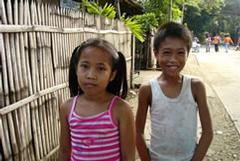Winning EssaysWinners of the Eighth Annual Berkeley Prize Essay Competition are announced today by Professor Raymond Lifchez, Chair of the Berkeley Undergraduate Prize for Architectural Design Excellence. Prizes for the 2006 Essay Competition are awarded to: First Prize
Qurratulain Poonawala, Indus Valley School of Art and Architecture, Karachi, Pakistan
"I am a final year architecture student at the Indus Valley School of Art & Architecture, located in Karachi, Pakistan and will graduate by the end of year 2006. Besides pursuing architectural education, I am also a regular freelance writer for an international architectural quarterly ‘A+I’ published in Karachi and for one of Pakistan’s leading newspaper ‘DAWN’. With this as a beginning I aspire to scale the heights of architectural journalism and writing. I have a strong interest in the relationship between ‘nature and architecture’ and urban design with regards to the dynamics of public spaces specially the ‘street’ and I plan to further research on it through my senior dissertation/ written thesis ‘Talking Streets’ which dwells on the characteristics of the street as a ‘living thing’. "
Second Prize
Ashween Ramhotar, RMIT University, Melbourne, Australia
"I am a Mauritian studying in 4th year Architecture at RMIT University in Melbourne, Australia. Having previously had three years of work experience in Mauritius, I have developed a strong interest in investigating the making of cultural identity in the contemporary architecture of developing countries."
Third Prize
Carol Bellows and Sebastian Rake, University of Oregon, Eugene, U.S.A
"Carol Maurey Bellows enjoyed a 30 year career in the performing arts in Chicago, New York and Los Angeles before returning to college. With a husband and two elementary school-aged daughters in tow, she moved in 2003 to Eugene, Oregon to pursue her degree in Landscape Architecture at the University of Oregon. She holds a certificate in Healthcare Garden Design from the Chicago Botanic Garden, and is interested, among other things, in therapeutic landscapes, cultural landscape preservation and restoration, and the ways in which our society's evolving family structures are affected by spatial patterns built into our cities and suburbs. After graduation in 2007, she hopes to pursue a career in urban design and planning, healthcare design -- and to once again have a really nice garden."
"Sebastien Rake is an architecture student at the University of Oregon, and will be graduating in June of this year. He has lived in Eugene, Oregon for nearly 12 years. After graduation he will be traveling to Cape Town, South Africa to pursue a research and a photo-journal project."
Andrew Amara, Makerere University, Kampala, Uganda
"I was born and raised in Kampala, Uganda.
I developed a love for art while growing up: my family is large and we come from a farming village, my parents are from the same tribe but different clans. I have come to appreciate our local traditions & culture. Today however, societies are losing their customs. I am interested in architecture that explores and expresses our cultures and lifestyles while, finding a bridge between the modern and old. Ever since I began my secondary education, I have always been curious about new trends, approaches and solutions. Can urban spaces be tailored to suit our lifestyles, values; to convey meaning? I am also inspired by the tropical nature around, and the role it plays in the quest for shelter. Others interests are sustainable housing and green architecture. I am currently, completing my 4th year at the Architecture school, Makerere University, in Kampala." The 2006 Prize Competition attracted 127 entries from students representing 28 countries and 38 undergraduate architecture programs on 6 continents. There were 14 team entries, representing the further importance of collaborative effort in addressing a serious, difficult question about the role of the architect in society. The 2006 Berkeley Prize Essay Competition Question concerned the Children and the City: You believe that there are special ways that would allow children to uniquely benefit from the richness of the city in which you live. What is your best idea? Describe your thoughts in the form of a proposal that would persuade the city to agree to accept and help pay for the idea. Jurors for the 2006 competition were:
Anna Rubbo
This year's Berkeley Prize is dedicated to GROWING UP IN CITIES (GUiC). The GUiC Programme aims, on a world-wide basis, to put children's ideas for improving their communities into action and to educate the public and urban officials about urban issues related to children. It encourages the participation of young people in research, evaluation and decision-making processes. It specifically promotes engaging children in practical projects. Additional Help and InformationAre you in need of assistance? Please email info@berkeleyprize.org. |
|

